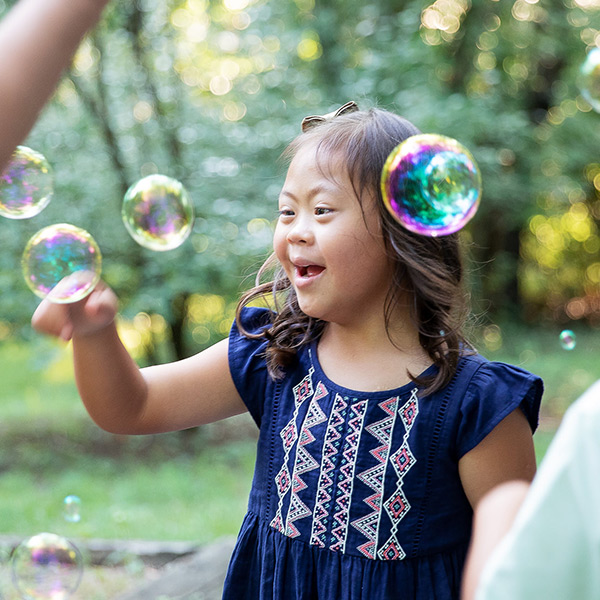Adverse Childhood Experiences (ACEs) and TBRI
Adverse Childhood Experiences—or more commonly known as ACEs—are traumatic events that occur in a child or teenager’s life before the age of 18. According to the Centers for Disease Control (CDC), “ACEs are linked to chronic health problems, mental illness, and substance use problems in adolescence and adulthood. ACEs can also negatively impact education, job opportunities, and earning potential.” Children and teenagers impacted by adoption and/or foster care are often more vulnerable to experiencing ACEs. However, there are care models and interventions—like TBRI® (Trust-Based Relational Intervention®)—available to strengthen connection and felt safety, furthering hope and healing in the lives of children, teenagers, and their families.
The original ACEs study was conducted by Kaiser Permanente from 1995 to 1997 with two waves of data collected. The study found a significant relationship between the number of ACEs a person experienced and a variety of negative outcomes in adulthood. The more ACEs experienced, the greater the risk of these outcomes. Examples of ACEs include emotional abuse, physical abuse, substance abuse, mental illness, domestic violence, criminal behavior, divorce, separation, and/or the death of a parent or loved one. The following are possible physical and mental health risk outcomes:
Obesity
Diabetes
Depression
Suicide attempts
STDs
Coronary heart disease
Cancer
Stroke
Chronic obstructive pulmonary disease (COPD)
Autoimmune disease
Connection Brings Hope and Healing
Trust-Based Relational Intervention (TBRI) is a care model designed to help meet relational and developmental needs of children and youth impacted by trauma. Developed by Drs. Karyn Purvis and David Cross at the Karyn Purvis Institute of Child Development at TCU, TBRI considers the whole child—his or her brain, biology, behavior, body, and beliefs—and provides parents and caregivers with practical tools and insight to help their child(ren) reach his or her highest potential. And, perhaps most integral, TBRI has connection at its core—the truth that connection builds trust, and trust builds healthy relationships.
The TBRI model is built upon three guiding principles:
Connecting Principles: Create connections that disarm fear, gain trust, and enhance learning.
Empowering Principles: Strengthen learning and regulation by meeting a child’s physical and environmental needs.
Correcting Principles: Shape beliefs and behaviors effectively, so children feel safe, protected, and empowered.
Children who have experienced complex trauma need parents and caregivers who are insightful, prepared, equipped, and committed.
As Dr. Karyn Purvis once said, “All children need to know that they’re precious and unique and special. But a child [who has experienced trauma] needs to know it more desperately.”
TBRI is:
Whole-Child
Attachment-Based
Trauma-Informed
Evidence-Based
Multi-Systemic
Developmentally Respectful
The human brain is like a two-story house. The “upstairs brain” allows us to think, reason, learn, remember, and regulate our emotions and is mostly unwired at birth. It takes time and experience for the upstairs brain to become hardwired.
The “downstairs brain” is mostly wired at birth and allows a newborn to eat, sleep, drink, stay warm or cool, and eliminate. A newborn’s reflexes and basic bodily functions are rooted here.
When a child experiences trauma, it can impact the wiring and chemistry of the brain—the lower, more primitive parts of the brain can overdevelop from reactions to fear while the more sophisticated upstairs brain remains underdeveloped.
Repeating nurturing experiences can strengthen the upstairs brain, so it can help regulate the downstairs brain, strengthening the balance between the two parts of the brain.
If a child spends too much time in fear, the brain organizes itself around the survival response—fight, flight, or freeze—and the downstairs brain runs the show.
Without felt safety and the ability to trust, the more sophisticated functions of the upstairs brain are largely inaccessible to a child. This is why the TBRI approach to addressing early trauma is vitally important.
As Tona Ottinger of Empowered to Connect once said, “As we provide emotional, physical, and spiritual safety for our kids and communicate that we will continue to pursue them, we create space for hope and healing.”
What is your ACE score? Download a questionnaire here.


